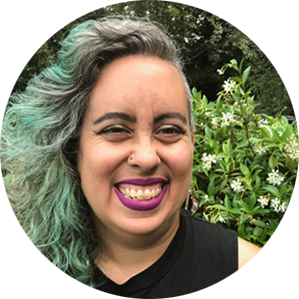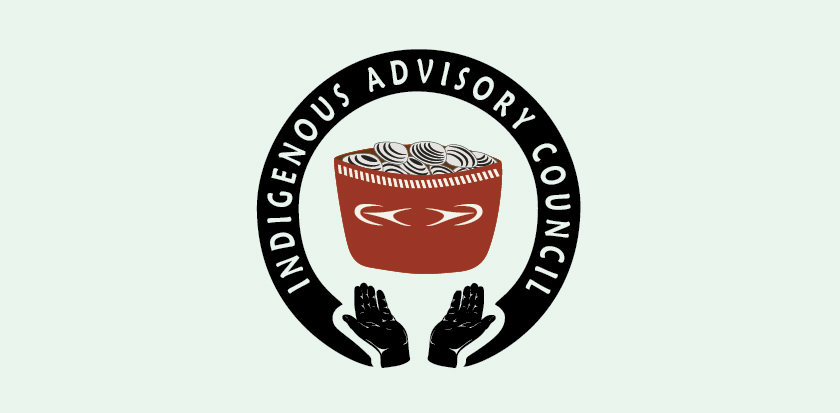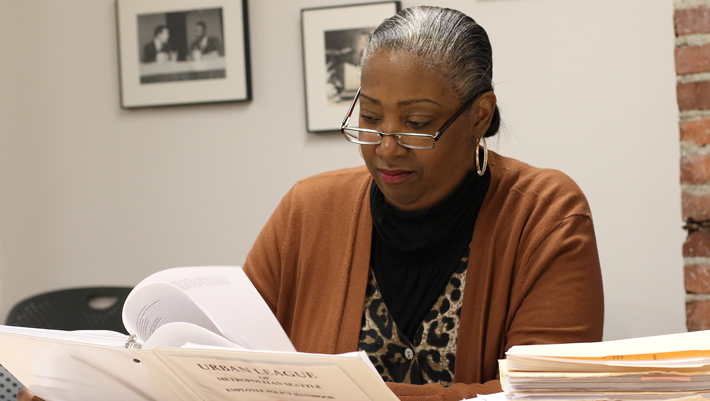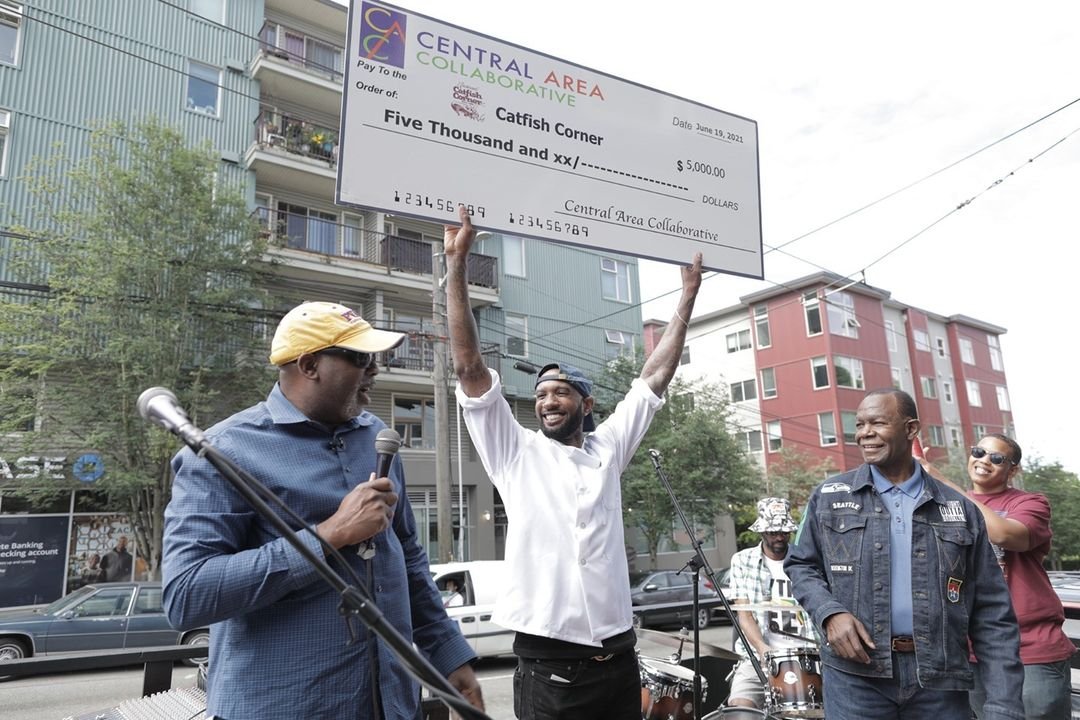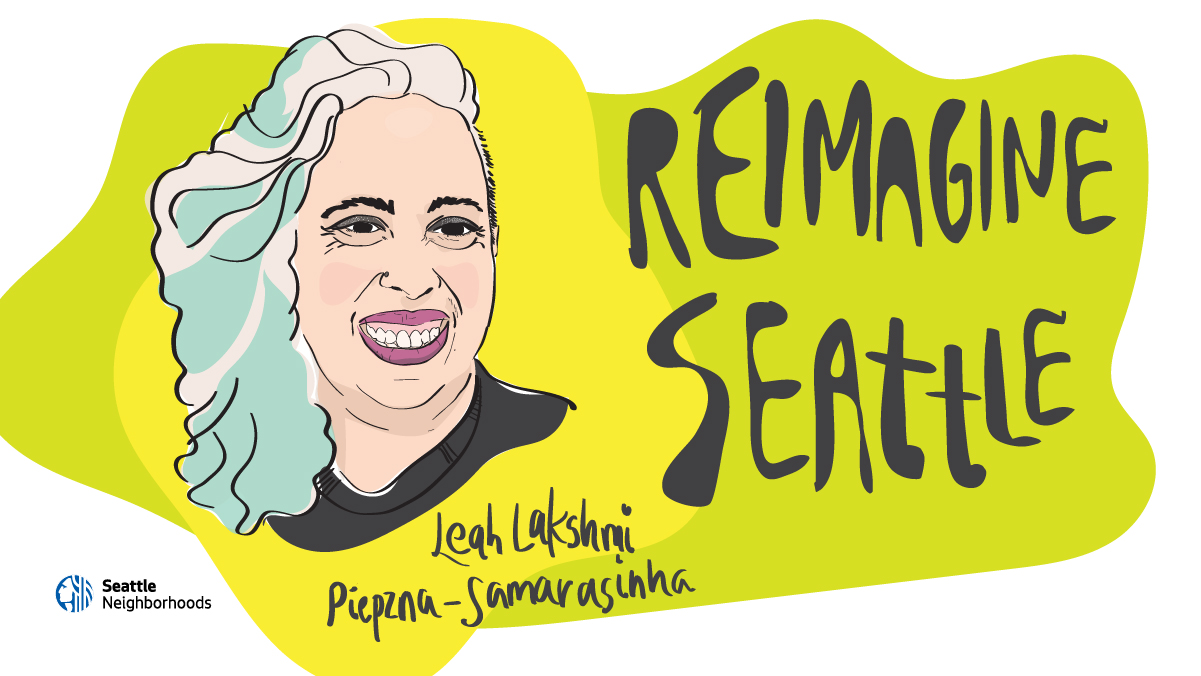
The challenges of the past two years have changed the way we live, the way we work, and the way we show up for each other. They have also given us a rare chance to collectively reimagine our future. Through the Reimagine Seattle Storytelling Project we invite community members to reflect on their current experiences in Seattle, how they have been impacted by recent events, and their hopes for the future of our city.
Sweet Slow Disabled Home
by Leah Lakshmi Piepzna-Samarasinha
When the Snowpocalypse hit Seattle in February 2019, I didn’t leave my house for a few weeks. Cheasty, where I live, already feels like you’re in the woods, even though you’re also in South Seattle and the Wendy’s and the light rail are five minutes away. As soon as the snow hit, and kept hitting, it felt even more like the country. Cedar and cottonwoods and gothic PNW evergreens, dripping snow. Road that feels like a dirt road, that I knew wouldn’t get ploughed for weeks because we weren’t a priority route. And I lived that way: I had my woodpile stocked, and my wood stove; I had the stash of food and whiskey and books laid into my house. At most, I hiked, with cane and hiking boots, up and down the Cheasty a little bit, marveling at the white and the woods. Life revolved around the house. My whole entire extended disabled family was inside their houses too- because sidewalks weren’t shoveled, busses weren’t running, the stairs were icy, elevators stopped working. Some of them made a video about it:
Some parts of it sucked, but, as my friend Neve said, “It’s almost as if the revolution were here! We’re just doing what matters – eating, sleeping, hanging out, helping each other. It’s great, until you need to make it to the grocery store.”
Two years later, over the past year of COVID, I’ve barely left my house, like many, if not most, of the rest of Seattle who has housing. The difference is, like many disabled and chronically ill folks, this is not that much different than how I lived my life before. It’s just that we’re better at it than most people.
It’s not that disabled people are all somehow magically blessed by the cripple fairy with the ability to deal with long term isolation well. And it’s not like our different kinds of isolation – from the kind created by ableist isolation from the academic building that refuses to install a ramp to the “Oh-that-sounds hard, we-couldn’t-possibly, maybe-next-century-we’ll-have-something” denial of an ask for ASL, CART, or online meeting to our 2020 being stuck in the house because even the grocery store with an N95 makes you wonder if you’re going to die – aren’t awful. It’s awful to be pushed out, rejected and forgotten; your basic needs seen as an annoying pain in the ass.
But in the face of all the kinds of isolation, some of us do have the opportunity to get very, very good at making living a home-centered life (a phrase I prefer to the more often used “home bound”) – sometimes bed-centered, hyper local life – rich. Maybe we get good at this through neurodiverse temperament, maybe through disabled cultural skills, sometimes through finding or making crip community, and mostly because we have no choice
While I miss certain things this quarantine year, my world often doesn’t feel small or constrained, even though I live in a world that is perhaps ten blocks wide. I’m grateful for the one trip I took in September and for the longish drives to explore parks and greenspaces. But my days are also full of long phone calls, epic text conversations, and traded audio files. I take yoga twice a week because the rad, fat, Black, femme teacher I love teaches online. Disabled communities have used Zoom for years before COVID to accessibly meet, and we know how to do it well. Not just the bottom lines of access, but the soft disabled skills of hanging out as we are instead of feeling like we have to dress up and perform normalcy and competency as I see abled people doing. Being easy if something glitches or takes longer than we expect. Our disabled skills make Zoom feel less like a shitty second-best and more intimate and open. I had a stacked calendar of online and phone meetings and performances for most of the year. I, in many ways, have the life that I’ve longed for for years. There are no more planes to catch, no more spoon sucking, joint dislocating work travel, and burnt out weeks afterwards recovering. No more in person meetings to stress about getting to on time, exhausted after from blowing spoons to dress, drive, park and behave.
Instead, I live a life that is about the everyday acts of home; I cook, clean-up, do garden and herbal projects. I do a ton of mutual aid survival check-ins and food and herb drop-offs. I have a chance to connect with friends, wear cozy clothes, watch TV shows I love. I cuddle with my cats, sleep in my bed every night, do prayer and spiritual work, do therapy work, journal. I rest, soak in my hot tub (yes, I am very lucky and have a great landlord) and walk in the strip of woods I live in. I go to The Station – which has become even more of a community hub – and hang out by El Centro, Estelita’s Library, Quilombo Tamales, MacPherson’s, and the Beacon Hill Food Forest – all Beacon Hill community institutions that are hanging in there during COVID, because the neighborhood can afford to, and wants to, support them.
The ways my life gets to be good definitely has some privilege in it. Right now, I’m making a lower middle-class income at the self-employment I’ve been doing for years – disability training, writing, and editing. But it’s also a disabled story that I didn’t lose gigs when COVID hit because I’d already worked to get my clients ok with me working remotely and many of my clients were already disabled people for whom this was the norm. But it’s also a life I see, with variations, in my disabled friends who are living on SSDI or SSI or student loans or sex work or hit and miss arts gigs, who are also still using the skills we’ve gained from being home-centered for years to get through this time better.
All of this also has the side effect of making me hate Seattle less. I moved here five years ago thinking it would be like Oakland but with less drought, and instead became one of the many BIPOC who moved here and got smacked really hard in the face by much of the city’s damp Scandanavian whiteness. I actually like Seattle a lot better now. I’m not trying to “make it work.” I see just the people and neighborhood spots locally I really like, instead of trying to force myself to go to inaccessible social events, or feeling bummed that I didn’t make it or had to leave. I feel better living a life that works for my neurodivergence, and that is supported by the world.
What do I want for the future? So much. But like many disabled people, I don’t want to “go back” to a “normal” that was inaccessible and sucked to begin with. New York based, disabled, Latinx activist Allissa Fernandez recently pointed out that, look how quickly all these restaurants can spend tens of thousands of dollars in two weeks building outdoor restaurants on the sidewalk when they wouldn’t spend five hundred bucks on a ramp for the past decade! Look how all these groups are scrambling to make Zoom, CART and ASL happen – and actually, finally being forced to learn how to do it well. I wouldn’t mind travelling to see my family, swimming in a warm pool, and seeing my acupuncturist, but I don’t want to go back to forced flying all the time, nothing ever online or captioned, no one ever able to admit they’re sad or scared. I don’t want to give up the good parts of this slow, crip, home life, city.
